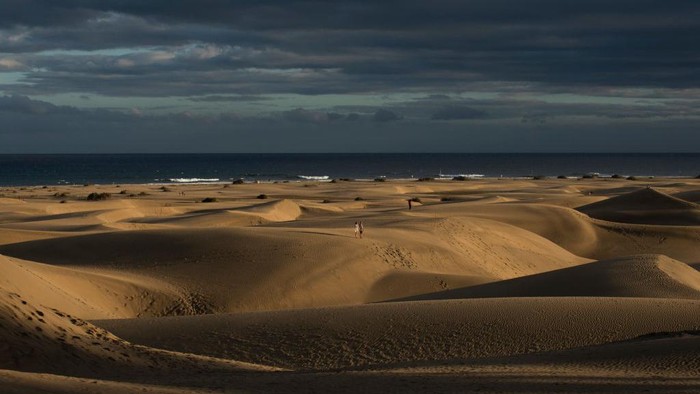Maspalomas - Akibat pandemi COVID-19 yang mematikan pariwisata, bukit pasir ini pulih dengan bentuk dan ketinggian yang kembali normal.
Foto Travel
Vegetasi Bukit Pasir di Spanyol Kembali Pulih Akibat Pandemi

Orang-orang berjalan melalui bukit pasir saat matahari hampir terbenam di Maspalomas, Spanyol.

Bukit pasir di Maspalomas telah mengalami transformasi positif selama pandemi Corona karena kurangnya pariwisata.

Upaya konservasi selama beberapa tahun untuk memulihkan habitat alami telah meningkat karena tidak adanya gangguan manusia.

Vegetasi bukit pasir tersebut pun mulai pulih, bentuk dan ketinggiannya juga mulai kembali normal.

Daerah yang merupakan situs ilmiah khusus dan cagar alam ini telah kehilangan pasir dengan kecepatan 45.000 meter kubik per tahun.

Bukit pasir ini juga menyusut beberapa meter selama 60 tahun terakhir.

Menyusutnya bukit pasir dikarenakan padatnya lalu lintas pariwisata setiap tahunnya di bukit pasir tersebut.

Bukit pasir di Maspalomas memang terkenal dengan keindahannya jika mendekati matahari terbenam.













































 Upload Photo
Upload Photo
 Write a Story
Write a Story
















Komentar Terbanyak
Wanita Palembang Nekat Nyamar Jadi Pramugari, Batik Air Buka Suara
Nyeleneh! Jemaah Zikir di Candi Prambanan: Mau Lepaskan Kutukan Roro Jonggrang
Tangis Istri Pelatih Valencia Pecah, Suasana Doa Bersama Jadi Penuh Haru